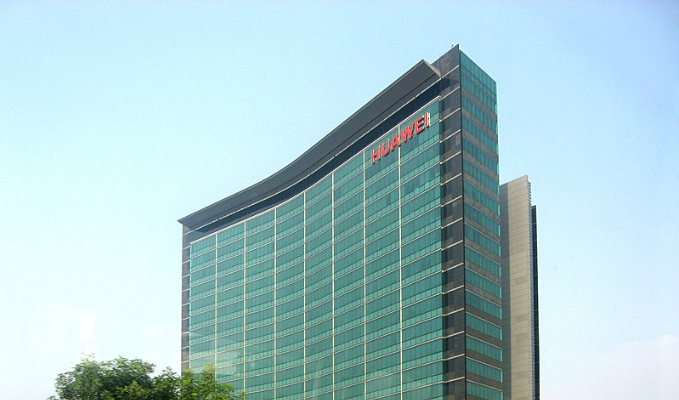
News outlets in Kenya and around the world have recently reported the success of Kenyan students at the Huawei Global ICT competitions, held in Shenzhen, China, last month.
The student teams drawn from Jomo Kenyatta University of Agriculture and Technology, Machakos University and the University of Nairobi, among others, emerged winners in key categories: computing, networking, cloud and innovation, at the annual competitions that brought together students from more than 100 countries.
The students’ success highlights the growing strength of Kenya in the fields of ICT education, innovation and global competitiveness.
While the competitions happened far away in China, the roots of the students’ victory can be traced to years of concerted effort by the Chinese technology giant, to transfer skills, technology to Kenyan students, educators and firms.
For long, some quarters have accused Chinese companies of not transferring technology to Africa; claims that are increasingly debunked by a number of studies and initiatives involving Chinese firms operating in Africa.
Chinese companies, particularly in telecommunications, infrastructure and manufacturing, have played a significant role in facilitating technology transfer across Africa.
Through direct investments, joint ventures, training programmes and infrastructure projects, these firms have helped bridge Africa’s technological gaps while fostering local capacity building.
A 2022 UNCTAD survey of African engineers working with Chinese firms, for example, found that 65 per cent of the respondents reported improved technical skills due to hands-on training. Another 2022 survey by Pew Research also found that 61 per cent of Africans in urban areas credit Chinese telecom firms for improved internet access.
Kenya is today home to more than 400 Chinese companies – all of which provide veritable outlets for technology transfer from Beijing to Nairobi. Take Huawei, for instance.
Since coming into the Kenyan market in 1998, the company has shifted its focus from merely supplying telecommunications equipment to fostering technology transfer through various mechanisms aimed at building local capacity, enhancing digital infrastructure and promoting ICT skills development.
Huawei’s flagship training programme, ‘Seeds for the Future,’ initiated in Kenya in 2014, is a cornerstone of its technology transfer efforts locally.
The programme selects outstanding ICT students from Kenyan universities and provides them with professional training at Huawei’s headquarters in China.
This initiative equips participants with advanced technical skills in areas such as 5G technologies, cloud computing and artificial intelligence.
Additionally, Huawei has established ICT academies across Kenya, partnering with universities to integrate cutting-edge technologies like Ascend and Huawei Cloud into academic curricula. By 2024, these academies had impacted more than 6,000 teachers and 600,000 students globally, with Kenya being a key beneficiary.
In April, the Chinese company inked a partnership deal with State Department for TVET to establish additional 150 ICT academies in the country.
The new move will see additional 1,000 students benefit from Huawei trainings and technology, annually besides building capacity of 150 trainers for the TVET sector every year.
Even more revolutionary is the Huawei mobile digital classroom, designed to provide free digital skills training to underserved communities in Africa.
First launched in Kenya in 2019 and housed in a solar-powered, portable truck, aims to boost digital inclusion and support Kenya’s transition to a knowledge-based economy by offering courses in basic computer literacy, internet usage, online business, and coding, to women and youth.
In the realm of innovation, Huawei is supporting start-ups and developers to gain access to tools for building mobile and cloud-based applications.
The Huawei Spark programme, for example, offers funding and mentorship to African start-ups, helping them scale and compete in global markets.
Beyond building capacity of Kenya’s young and seasoned, the Chinese company has also been at the forefront in modernising the country’s telecommunications infrastructure.
Huawei has laid thousands of kilometres of fibre optic cables, boosting broadband penetration in urban and rural areas. The company has also supported Safaricom in rolling out 4G networks, thereby improving internet accessibility.
In 2021, Huawei partnered with Safaricom to launch East Africa’s first 5G network trial, enhancing high-speed connectivity.
Through the RuralStar initiative, Huawei has also extended mobile coverage to Kenya’s remote areas, enabling access to digital services such as mobile banking and e-commerce.
This has enhanced connectivity has enabled innovations like M-Pesa, which relies on Huawei’s robust network infrastructure to facilitate seamless mobile transactions for millions of Kenyans to prosper.
Huawei’s activities have clearly positioned Kenya as a leader in ICT within East Africa. The deployment of high-speed internet infrastructure has equally enabled Kenyan businesses to adopt advanced technologies, fostering innovation in sectors like fintech, agriculture, and healthcare.
This is besides the thousands of direct job opportunities for Kenyans.
















